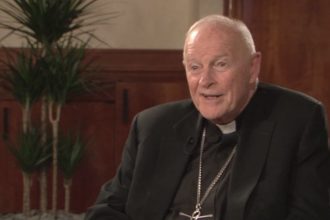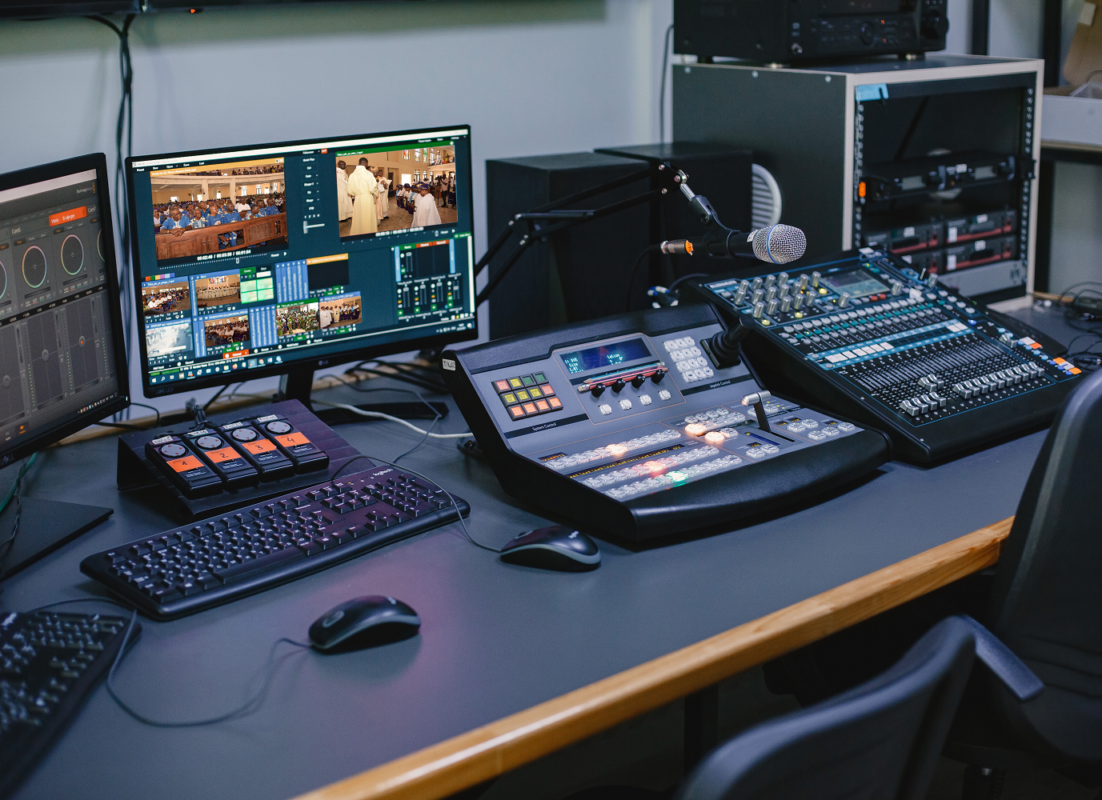YAOUNDÉ, Cameroon – A Catholic Church-owned satellite TV channel transmitting throughout Africa, the Catholic Television Nigeria, is now broadcasting wider across the continent.
According to its Director, Father Patrick Alumuku, the channel went continental during the Lenten period and could potentially reach Africa’s 281 million+ Catholics.
He says the channel will not also broadcast religious news, it will also discuss issues relevant to the African audience, such as agriculture, education, social welfare, and security.
“We offer holistic programming that sets us apart from other Catholic channels on MultiChoice and various television stations,” Alumuku told Crux.
“Our content spans education, agriculture, social welfare, and religion,” he added.
Following are excerpts of the interview…
Crux: What actually pushed you into creating this Catholic television, given that we already have a plurality of media organs covering the Catholic Church in Nigeria in Africa?
Alukumu: About 20 years ago, a media expert in Nigeria, High Chief Raymond Dokbesi, attempted to establish a satellite television bouquet with approximately 150 channels to compete with DSTV and MultiChoice. As a Catholic, he wanted to include a Catholic channel on the platform.
His company, Dasat, was launched and entered the market, selling shares and making strides, but ultimately, it did not succeed.
During the planning phase, he invited Cardinal Onaiyekan, then the Archbishop of Abuja, to set up a Catholic channel. Cardinal Onaiyekan, in turn, called me as Director of Communications and asked if I could start a Catholic television station. That marked the beginning of the initiative.
It was truly the vision of Cardinal Onaiyekan, who instructed me to create Catholic television. I took his words seriously, as a priest would his bishop or a soldier his commanding officer.
At the outset, we had no camera, no microphone, no studio, and no money. Yet, that was how it all began.
Did you find out why it didn’t work?
It was a vast conglomerate. The operation was highly complex, requiring substantial financial investment, technical expertise, and satellite infrastructure. The goal was to surpass DSTV in English-speaking African countries, making it an ambitious undertaking.
However, over time, the project did not succeed. The owner of African Independent Television (AIT) had various media assets, including a television channel and a radio station. His company, DARSAT, was meant to manage these alongside the satellite network. Nevertheless, due to challenges in funding and technical proficiency, the project could not proceed as envisioned.
By then, we had already embarked on the Catholic Television Channel initiative he had requested. Given the difficulties in launching a full-fledged channel, we began with a 15-minute program on AIT. Over the years, we expanded, and about seven years ago, we launched a free-to-air platform, broadcasting across West Africa via a Nigerian communication satellite.
Since 2010, we have maintained consistent transmission—marking 15 years of progress. Initially, we aired on national television before transitioning to satellite broadcasting via NigComSat. As we gained recognition, people encouraged us to broaden our reach. Even some bishops acknowledged our efforts but noted that our audience remained limited, urging us to seek placement on DSTV.
We pursued this opportunity, but DSTV stated that they were awaiting spectrum expansion. As a result, they offered us a spot on GOTV. Just yesterday, I received a promising message from the CEO—they had reviewed our programs and believed there was potential for us to secure a channel on DSTV.
And if you were to get onto DSTV, what would be the reach?
Currently, we are reaching most English-speaking countries in Africa. With DSTV, our coverage will extend to every country on the continent, allowing people to watch our programs wherever they are.
For instance, Rai, the Italian television channel available on DSTV, caters to a niche audience. Many Nuncio offices in Africa follow Rai to stay updated on political and religious developments in Rome.
Once we secure a spot on DSTV, our visibility will significantly improve. Viewers across Africa —whether in English-speaking or French-speaking countries—will be able to watch our content without restrictions.
So, what kind of programming are you offering?
We offer holistic programming that sets us apart from other Catholic channels on MultiChoice and various television stations. Our content spans education, agriculture, social welfare, and religion.
Based in Abuja, we are at the heart of a region where the church faces significant persecution. This reality shapes our programming, with a focus on reconciliation and fostering dialogue between Christians and Muslims. This commitment to interfaith harmony is a defining feature of our channel.
We firmly believe in the possibility of coexistence between Christians and Muslims. Our priority is to raise awareness among people who may not fully grasp the gravity of the situation. For instance, in Makurdi, Benue State, where I am currently, the community is predominantly Christian. When Fulani attackers strike, they kill a few people at night, forcing others to flee their homes, which are then occupied by the attackers. This has led to the displacement of people who had never faced such challenges before, now living in IDP camps.
Despite these challenges, I believe that fostering dialogue between sincere, well-meaning Muslims and Christians can lead to a solution. By working together, we can create a future where coexistence and collaboration are possible.
How do you engage audiences in other African countries?
Our television channel, which will soon be broadcast across Africa, aims to engage audiences in diverse countries. From its humble beginnings, it has grown steadily. Initially, we launched without external funding, relying on support from a handful of Catholics. We personally sought contributions, going door to door to secure cameras, microphones, studio space, and vehicles for staff.
With assistance from EWTN, we established centers in Kaduna, Kano, Jos, and Makurdi. At the January meeting of bishops from Abuja, Jos, and Kaduna provinces, they committed to setting up production studios in each of their dioceses—about 23 in total. We are expanding to Lagos, Enugu, Calabar, and beyond.
Additionally, we are fostering connections with other Catholic television networks across Africa. In 2024, we held our first meeting in Abuja with representatives from Rwanda, Zambia, Cameroon, Ghana, Nigeria, and others. Our goal is to collaborate, exchange programs, and eventually establish correspondents in different countries to provide consistent coverage.
The church has a presence in every African nation, giving us a unique opportunity to organize efficiently. Volunteers and dedicated Catholics will play a crucial role in building a strong continental network. Our vision is to create a television channel that Catholics across Africa will be proud of.
Any other issues you think we should address that we might have left out?
It is essential for Catholics to understand that this television channel is not funded by the Vatican or an Episcopal conference. Instead, it was born from the vision of African church leadership and built by African Catholics. This independence is our strength and our advantage.
We rely on continuous support from the Catholic community to sustain and grow. Their contributions — whether financial assistance, technical expertise, or infrastructure — makes this station a beacon of peace. Just last week, a supporter donated solar panels to ensure uninterrupted transmissions.
This is a channel for African Catholics, created by African Catholics. Whether in Nigeria, Cameroon, or elsewhere, it belongs to the people, and they have the responsibility to support and sustain it.







